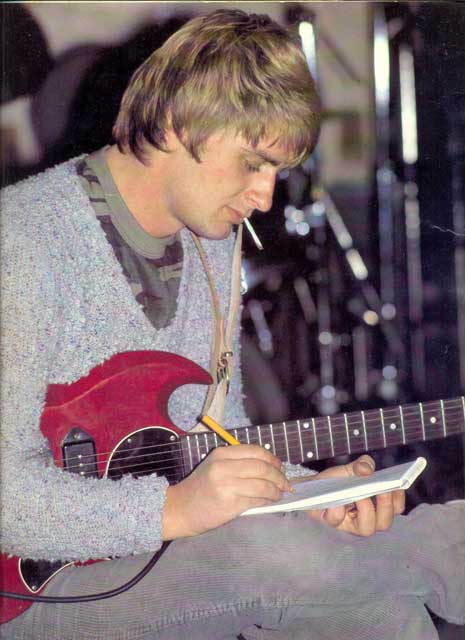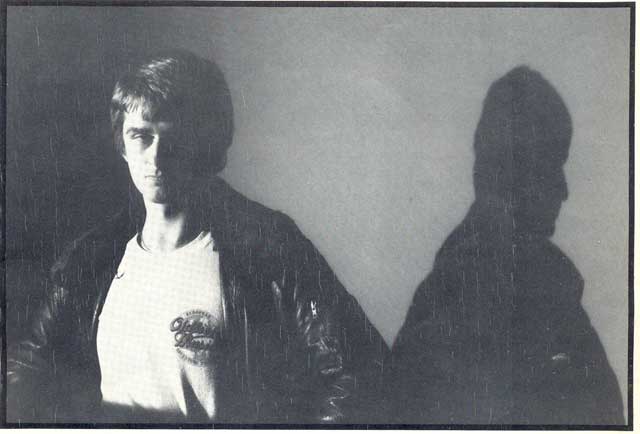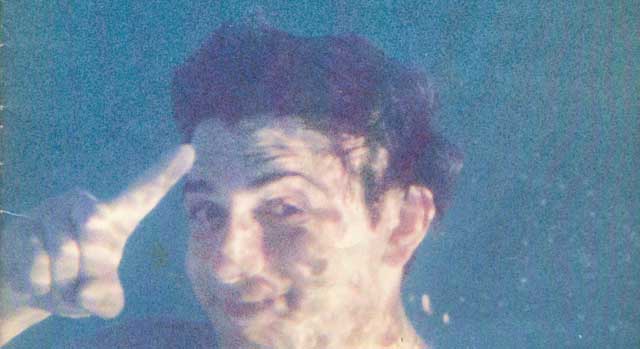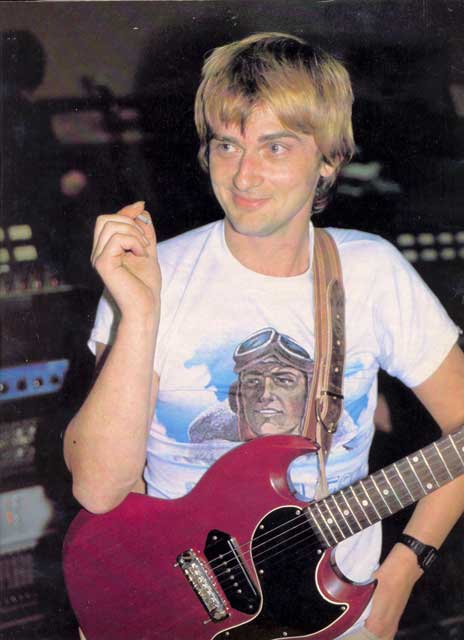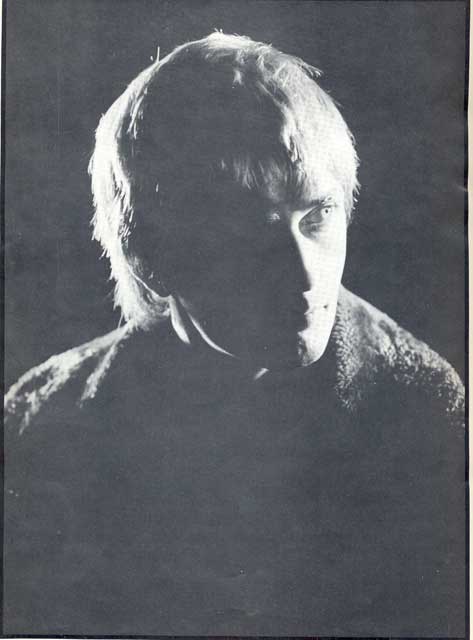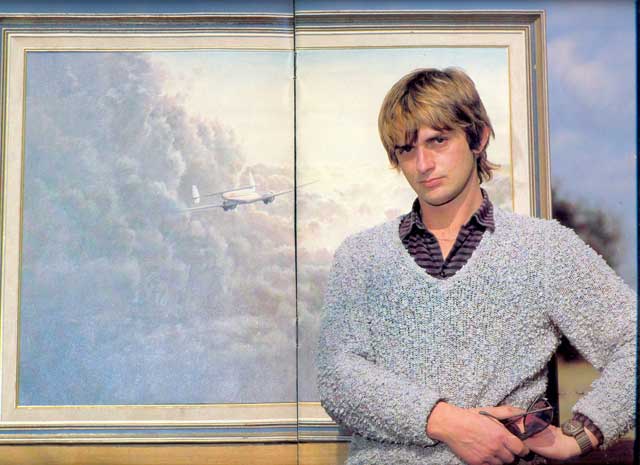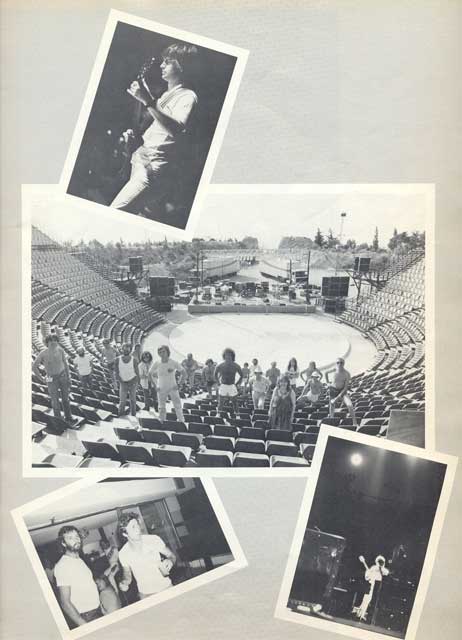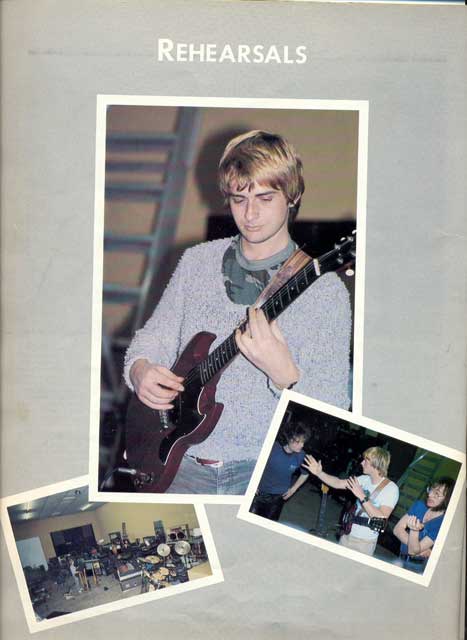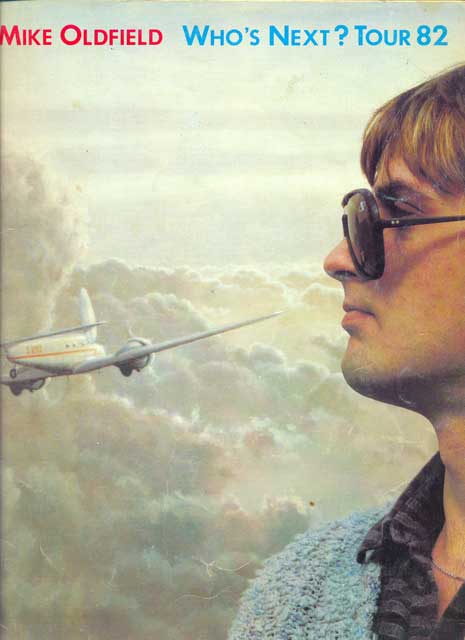
It took popular music a full quarter of a century to reach the peak from which we are still reaping the fruits. What began as simple pop in the Fifties, and mushroomed into a social phenomenon in the Sixties, dramatically changed gear during the Seventies.
Like a renaissance, the rock music of that golden decade howled and raged and changed directions so much that its many effects are still with us. And perhaps more importantly, its chief players are today to the music scene what the grand masters are to the game of chess: men of unquestioned pedigree.
Pink Floyd and the Who and Led Zeppelin and Queen, plus hundreds of other musicians, brought to modern rock a dignity and a grandeur that is proving impossible to eclipse-and part of the reason may be that many of the players who attracted discerning young adults into the audience during the Seventies are still with us, making records and playing concerts which are glorious celebrations. Of course, they have changed and matured with their audiences. But what remains is their fundamental musicianship and their constant determination to elevate popular music beyond the three-minute single thrill, laudable though that is.
Mike Oldfield's position in the superstrata of rock is assured, even though the enigmatic personality has made it difficult to pinpoint his aims and his role. He first came upon us in 1973 with "Tubular Bells," a multi-million selling album which many regarded as a freak show from which he would never properly recover. Indeed, there were years when he did show signs of withdrawing into a strangely subdued world which scarcely reflected the experimental nature of his music. But the Oldfield of today strikes no poses, gives his ten-year history in the music world only a cursory glance, and looks ahead with almost frightening confidence, all set to begin a remarkable new period of international activity which should see him joining that elite band of performers who can carry on making music for the rest of their lives.
During the Seventies, in spite of his enormous recording successes, Mike was an introverted, subdued personality with all the signs that his colossally successful debut album was proving to be a millstone round his neck. Today, at the start of a new decade, he is a formidable combination of inventive musician, experienced recording studio technician, bandleader, organiser and composer.
As he undertakes a gruelling world tour with all the signs that he is out for massive success, it would be easy to reflect that he has had ten wasted years in which he should have projected himself harder and been more prolific on the concert stage and in the recording studio.
"That's not the case. lt would have been a mistake," he says definitely. "I don't regret anything I've done. In 1973 I was not assertive and pulled back from doing any pushing of myself. It was a correct decision. I'm a far better musician now than I would have been if I had, at that time, treated the business as a business. I came through at a time when my only interest was music, not being a star or playing games. Now, having spent such a lot of time during the post ten years or so in the studio, I am technically well prepared enough to handle anything."
"I am now," he states with some force, ''prepared for everything I need to do to stay in the world of music forever. Psychologically, musically, physically and in terms of music techniques, as well as in experience of everything entailed in putting together a live show, I am absolutely ready to play the whole game."
Oldfield is a ''total concept" man. It's not easy to reconcile the short, wiry guy you see on stage, hardly moving about, with the bundle of energy he has become in order to piece together a well-oiled machine that trots around the world with most parts of the jigsaw, if not exactly put together by Mike, at least watched over by him. But one of the most interesting aspects of the New Mike Oldfield is his eagerness to learn the art of handling people, a major part of a bandleader's role.
An army of 16 people travels the world as the Oldfield entourage. Six musicians, 9 crew and one manager make up this package, and Mike says: "I am very much the leader of the whole organisation but I very rarely have to display that fact in a basic way. If you have to be the boss and exert yourself, you have either hired the wrong people or behaved in the wrong way towards them."
"But all that was foreign to me. The art of dealing with people has taken about three years to sink in and now I feel I am in control of my own destiny. The most important aspect of the whole operation is to hire the right people. And then I give the whole team, from the musicians right through to the crew, a percentage of the album's profits, so that they all feel totally involved. For the band's tour of Spain at the end of 1980, I did everything as well as play -tour management, accounting, travel arrangements and hotels. So nobody can tell me what's not possible. I've done everything and the experience has been a great advantage in putting together a team that trusts me like I trust them."
Those familiar with the names that have surrounded Mike Oldfield will know the people by his side on this tour. Tim Cross (keyboards) is a veteran of all Mike's tours; Morris Pert and Pierre Moerlen, both experienced in orchestral percussion, are in charge of the drums and percussion section; Tim Renwick is on guitar; the strong-voiced Maggie Reilly sings; and Mike Oldfield plays guitar and keyboards.
The visual presentation of Mike Oldfield's band stage act is something that occupies the leader's time and energy whenever he is not on the road. " I have many visual ideas nowadays, like the video which has been made to promote my single, 'Five Miles Out.' And I love giving ideas to the crew to translate into reality-lights and effects particularly. There will be a different stage set-up in America, Australia and Japan from the one we put up in Europe. Then we have an overall production manager, Pete Edmunds.
Oldfield has coined a phrase that aims to surmount all the obstacles that crop up in planning and executing this marathon world tour which, as well as being Mike's biggest, might claim some kind of record for exhaustiveness: it runs from Canada in April through to Germany -where Mike is the biggest-selling recording artist - in December, and includes a Mandate European schedule.
That phrase is: ''Straight Ahead." The description by some critics of Mike's music has made little lasting impact on him. He finds it ironic, for example, that his "Tubular Bells" album was described as rock Muzak, because while on a recent holiday in Tenerife, he heard the music of English punk bands in the hotel lift. "Absolutely bizarre,'' he says. "My record was knocked because it was played in hotels, supermarkets and trains, now much worse music is apparently OK because it has the label of punk and new wave."
He becomes animated and articulate on the subject of standards in music. Although he was inspired by the great classical composers, Mike was moved also by the great bands of the Seventies like led Zeppelin and Free. Since that period, he mourns, rock has lost its heroism.
“I was quite chuffed to be asked by a punk band to go and produce one of their records a year ago, he says. '' I'm not going to say who it was, but their standard of musicianship was abysmal. Most of those guys in that world need to go back to their houses and practise for five years before they even think about calling themselves musicians.
''I feel a great responsibility for the quality of music people listen to. I think anyone working in this world of music should have a big pride in what they do for the sake of it, and not simply aim to have a single in the charts. They should strive to make what they are doing last and last ... that was a lot of what the Seventies was about. The Sixties, too, seemed good. I saw a film clip of Lulu on television, and it seemed to have a conviction and commitment that the new wave bands don't get across. There must have been something about the Sixties, too, because they're playing the records from that decade on the radio every day!"
He says he'll do anything to get his music right. "Stay up all night at the drop of a hat. My album took 1,500 hours of studio time and the single about 600 hours, but the feeling of triumph at the end is worth every bit of effort.
"The reason I spent such a long time perfecting this album is because I love touring and you do need new music to perform when you go on the road." So many musicians loathe the rigours of touring, but Mike is not among them: '' I can't think of anything nicer to do with your life than play live gigs for ever. It's a mystical, magical occasion when you create something. To see people leaving a hall happier and more excited than when they came in is fantastic. Our concert atmospheres are unbelievable, especially in Germany where the shows resemble the Cup Final in England -they come with banners and scarves and I get an amazing feeling from all that." He has been a professional musician for 13 years, since he was 15, so clearly has many years ahead in which to enrich his music and advance his visual ideas for entertaining audiences. " I don't feel I've had a career until now," he says bluntly. "I thrive on audience applause and big record sales. I judge a concert now not by how much they clap but by whether they shout a lot at the end. If they hurt my ears, we've done a good gig, if not, I feel there was something wrong with what we played."
Much of the precision in the new Mike Oldfield is traceable to the way in which he has disciplined his life in the post few years. Gone is the vagueness of yesteryear; in its place we have a softly-spoken man of iron determination who will be an active musician for the rest of his life. " I don't listen to any other music apart from what I hear on the radio when I'm driving about," he says. "I go to concerts only to see the production and the lighting. I don't have time to go around buying records. I'm busy every single day planning albums or tours. When I've got free time I lake a holiday or read a book. I do play squash a lot because to be a successful touring musician you have to be quite fit. And I quite like cigarettes and alcohol so I need to keep taking exercise."
The band's new music reflects its leader's positive direction. "Tubular Bells," "Hergest Ridge," ''Ommadawn" and "Incantations" had a common bond of soft texture, perhaps mirroring the coolness and uncertainty of Mike Oldfield at the time he wrote the music. The new sound is more abrasive, grabs the listener more by the ears, and tells the world that the composer knew which way he was going.
"I 'm positive that I have enough musical talent to survive any onslaughts by the media,'' he says. "That might sound like blowing my own trumpet, but it's true. I don't think the media in general in Britain, in particular, has any musical taste or ability. And they don't like me because I'm independent of them and succeed without them. The audience is what matters, the people who buy the records and the concert tickets. If they enjoy it, who needs the media? As I approach 30, I see a general position emerging for myself. What matters now, after all these years, is that I have the respect of an audience and the respect of musicians who really care."
The world of contemporary rock is richer for the enthusiasm, creativity, perseverance and determination of young veterans like Mike Oldfield. Long may he run.
The Mike Oldfield group is unique among live acts in several respects. Primarily, Oldfield himself is personally in control of the on-stage-sound, controlling the master sound mix of each individual musician with a Rebis audio 30 into 24 monitor mixer. This on-stage-mix is set up at sound-check usually four hours before each concert. Additionally, each musician is equipped with a 10-channel mono mixer and a powerful recording studio monitor loudspeaker. If, for example, the percussionist on the left-hand side of the stage wants to hear more, or less, of the percussionist on the right-hand side, he simply moves one of his 10 vertical sliders up or down. In this way each of the musicians has independent control of their own sound environment.
Secondly, the philosophy behind the design of the PA system is to re-create as for as possible the accoustical environment in which Oldfield created his music, i. e. in the studio, so, if you look to either side of the stage you will see a giant stack of professional studio speakers identical in every respect to the speakers with which the original recordings were made.
To summarise, this live sound system has been especially designed and built at considerable expense to provide you, the listener, with the best possible sound available.
We sincerely hope you agree.

